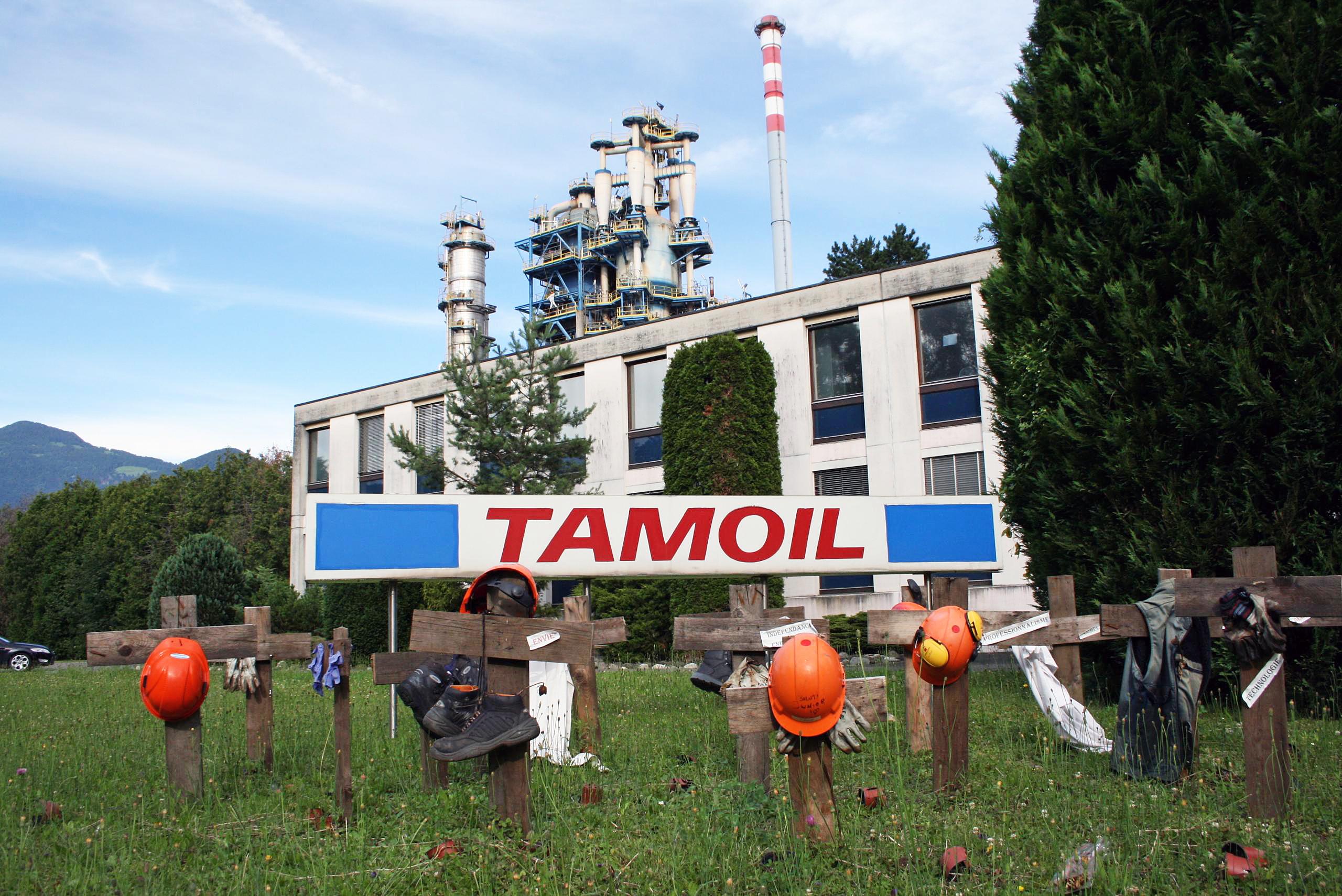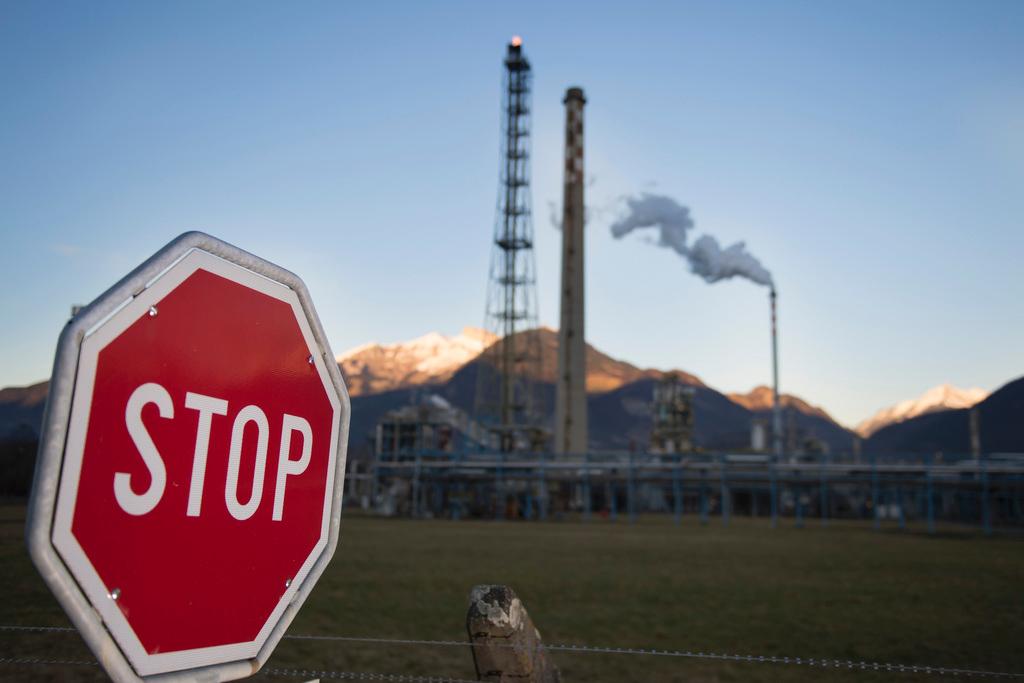Dramatic twist means Tamoil buyback may be possible

Lebanese-American financier Roger Tamraz, the founder of Tamoil, says he would consider buying back the Collombey refinery in Switzerland with a view to reopening it.
Tamoil – which has been owned by Libya since 1988 – announced through its Swiss branchExternal link that it was stopping work at the site and letting go of 238 workers at the beginning of the year. Hopes have not been high of saving the site.
“I am not exactly the Red Cross, nor I am really emotional about this company which even bears my name, but I simply believe, economically speaking, that this refinery could be profitable,” said Tamraz, speaking exclusively to swissinfo.ch on the phone from Beijing, China, about his intentions about the refinery situated in the canton of Valais, in the west of the country.
The Collombey plant,External link which produced 55,000 barrels-per-day, is one of only two oil refineries in Switzerland; the other is located at Cressier, canton Neuchâtel.
“I have taken the decision in the past 48 hours and I have just informed the Valais authorities via my lawyer,” the businessman said, in a change to his earlier stated intention not to buy the refinery or the 311 service stations which bear the logo.
“The important thing when running a refinery is to know how to buy your crude oil. If you buy it cheaply, you can’t lose. Right at the moment the price is dropping and I can’t see it increasing anytime soon,” Tamraz explained, adding that he did not believe in the reason, financial losses, given for work stopping at the site, especially as for 25 years of its 30 year history, all had been going well.
Who owns, who decides?
Tamoil is the commercial name of the company, Oilinvest, which is based in the Netherlands and is active in oil and maritime transport. In addition to refineries, Tamoil owns more than 3,000 service stations in Europe. Its turnover is estimated at almost $20 billion (CHF19 billion), although the group does not publish figures. In turn, Oilinvest belongs to the Libyan Investment Authority (LIA)External link, a sovereign fund created in 2006, worth currently almost $70 billion.
The problem is that since the fall of ex-Libyan leader Moammar Gaddafi in 2011 no one knows for sure who controls the LIA, as there are two rival governments at play.
“If you dig into the ownership structure of Tamoil, you think you are in a John Le Carré novel,” said Philippe Nantermod, a Valais politician who has fought to limit the fallout of refinery closure. Even the local mayor of Collombey-Muraz, Yannick Buttet, is not sure.
At Tamoil Switzerland’s headquarters in Geneva, Stéphane Trachsler, confirmed to swissinfo.ch in writing that the decision had been taken by Tamoil SA and ratified by the shareholders.
“Tamoil is continuing to explore all the possible options in order to make a final decision about the refinery. Selling is one of these options,” wrote the company spokesman.
Since March offers can be made to the company concerning the site, but none have yet been accepted.
For Tamraz it’s a question of responsibility. Around 20% of all petroleum products consumed in Switzerland arrive via pipelines passing from Genoa along the Rhône Valley and end up Collombey. There are thus no transport-related problems. Like others in the region, Tamraz says it is not good to lose this advantage.
Canton Valais on Friday evening confirmed it had received the offer, according to the Swiss News Agency. It is not the only offer to buy, the two already put forward by the canton not having had any results.
The plan to stop work at the refinery was announced on January 13 this year due to financial considerations. A social plan for the employees was announced in May.
Tamoil wants to keep its service stations in the country.
Adapted from French by Isobel Leybold

In compliance with the JTI standards
More: SWI swissinfo.ch certified by the Journalism Trust Initiative












You can find an overview of ongoing debates with our journalists here . Please join us!
If you want to start a conversation about a topic raised in this article or want to report factual errors, email us at english@swissinfo.ch.